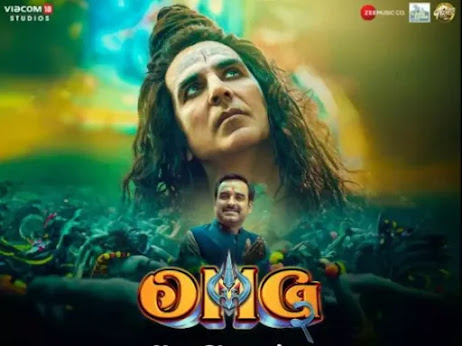DO PATTI : Movie review from a mental health perspective
Let’s review the movie Do Patti. It is a Netflix film directed by Shashanka Chaturvedi, written and produced by Kanika Dhillon and Kriti Sanon.
The film stars Kriti Sanon in a dual role as identical twins. It also features Kajol, Shaheer Sheikh, and Janvi Aazmi.
The movie explores themes such as sibling rivalry, childhood emotional neglect and its consequences on a child's mental health, PTSD, domestic violence, and self-harm.
The film effectively portrays how the protagonist "Sowmya" (one of the identical twins) is affected by childhood emotional neglect, which stems from her parents’ chaotic relationship and the sibling rivalry by her twin sister. Due to these adverse conditions during her upbringing, she becomes hypersensitive and suffers from low self-esteem, intermittent anxiety and depression, a fear of heights, and more.
Sowmya’s character shows signs of attachment issues and a lack of emotional development due to unresolved childhood trauma. This trauma severely impacts her interpersonal relationships, especially with her twin sister and her husband.
The other protagonist, "Shailee" (the other twin), is portrayed as domineering, adamant, jealous, and hostile. She is seen eyeing and wooing her boyfriend, often commenting, "He is way out of your league." This suggests that Shailee harbors unhealthy competition with her sister Sowmya, pointing to a severe sibling rivalry disorder. From these scenes, we can infer that Shailee also has personality issues.
The movie also highlights the “THE REPLAY OF DOMESTIC VIOLENCE” in Sowmya’s life. She ends up marrying a man who mirrors her abrasive father, and she mimics her helpless, dependent & vulnerable mother. This reflects unresolved secondary trauma from witnessing domestic violence towards her mother, who died by strangulation at the hands of her father.
As the story unfolds, Sowmya’s mental health deteriorates, and she starts engaging in self-harm. She is depicted repeatedly saying, “It’s all my fault. Even I will be killed by my husband, just like my father did to my mother.”
Seeing Sowmya’s pitiful state, her sister Shailee puts aside her hostility and comes to her rescue. She takes legal action with Sowmya against her abusive husband and encourages Sowmya to face the court proceedings. The verdict is in their favor, and they win the case.
At the end of the movie, Shailee confesses in court that not only was their father responsible for their mother’s death, but she too bears some responsibility for being a silent witness. She regrets not speaking out that day due to a lack of courage. To take a stand requires immense bravery, something both she and her mother could not summon at the time. Shailee expresses her pride in Sowmya for having the courage to stand up against domestic violence.
Shailee also acknowledges her own stubbornness and bitterness, and admits that she made things difficult for her sister.
The movie highlights several important themes:
The need to speak out against domestic violence rather than suffering in silence.
Domestic abuse harms not only the body but the mind as well. From a mental health perspective, the film effectively portrays how trauma doesn’t just vanish; it festers and manifests in unexpected ways.
Domestic violence creates dysfunction within family dynamics, and children often bear the brunt of it. An entire generation can suffer.
"Generational trauma" can affect multiple generations if no proper intervention is made.
Gaslighting and emotional manipulation are subtle yet powerful themes in Do Patti. Gaslighting can lead to long-term mental health issues like anxiety, depression, and even PTSD, all of which the film portrays with surprising accuracy.
The importance of family support, seeking help, and healthy childhood personality development.



Comments
Post a Comment